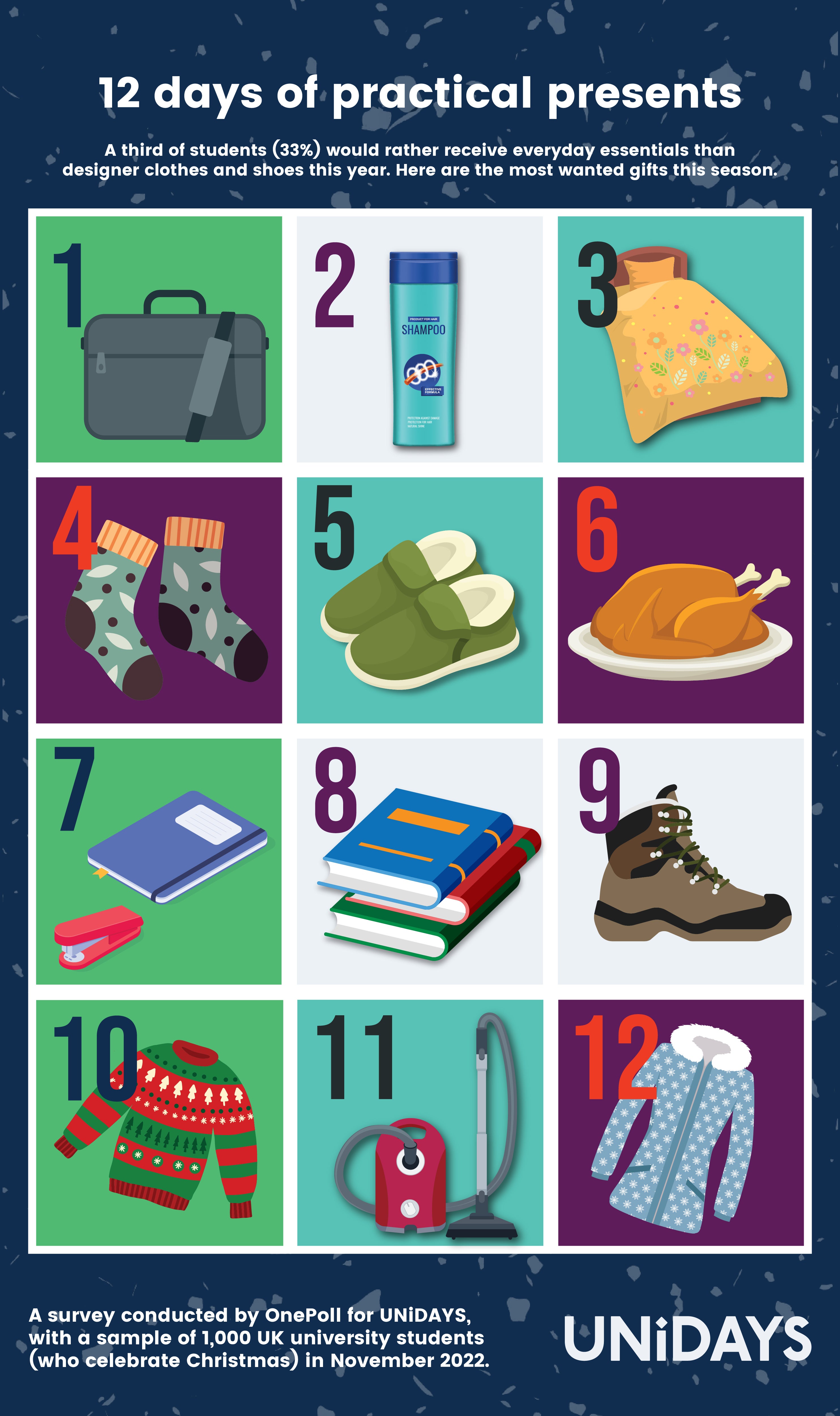Students hoping for ‘practical’ Christmas presents amid cost of living crisis
One-quarter of students also say they will cut back drastically on gift-giving this year

Your support helps us to tell the story
From reproductive rights to climate change to Big Tech, The Independent is on the ground when the story is developing. Whether it's investigating the financials of Elon Musk's pro-Trump PAC or producing our latest documentary, 'The A Word', which shines a light on the American women fighting for reproductive rights, we know how important it is to parse out the facts from the messaging.
At such a critical moment in US history, we need reporters on the ground. Your donation allows us to keep sending journalists to speak to both sides of the story.
The Independent is trusted by Americans across the entire political spectrum. And unlike many other quality news outlets, we choose not to lock Americans out of our reporting and analysis with paywalls. We believe quality journalism should be available to everyone, paid for by those who can afford it.
Your support makes all the difference.Students are asking for ‘practical’ presents this Christmas as the cost-of-living crisis bites, including electric blankets, money towards energy bills and even toilet roll.
A poll of 1,000 undergraduates found they would much prefer everyday essentials rather than designer clothes and shoes this year.
And with 51 per cent feeling the pinch of the cost-of-living crisis, 49 per cent would rather have shampoo and tins of food bought for them, so they don’t spend the money on it themselves.
Others intend to ask loved ones to gift them underwear, bath products and hot water bottles.
However, 33 per cent are still hoping for an average of four expensive gifts from their parents this Christmas.
Alex Gallagher, chief strategy officer at Unidays, which commissioned the research, said: “Priorities are changing for many students this year.
“With prices rising, asking for those more practical presents for Christmas provides students with financial peace of mind – as they won’t have to fork out for essential items themselves.
“Money is understandably tight, so it’s important that we help support cash-strapped students and give back to them over the festive season, so they can have the best experience possible.”
The study also found a quarter of students plan to buy fewer presents for their friends and family this year compared to last.
And while 38 per cent feel relieved at the thought of buying less, 37 per cent feel sad about it, while 25 per cent feel embarrassed.
But 31 per cent have had to be more frugal with their spending since the cost of living crisis, with 47 per cent dreading Christmas because they don’t know how they’re going to afford it.

As a result, 29 per cent now class some items they used to see as ordinary essentials as more of a luxury since the price increases.
Food prices, petrol prices and bills are the top three things that have surprised students the most following the increases.
But it’s not just Christmas that has been affected, with a third claiming the cost of living crisis has had a negative impact on their university experience in some way.
And of those who took part in the study, via OnePoll, 73 per cent said they already work two part time jobs alongside their studies.
The spokesperson for Unidays added: “There is no doubt that the word on Gen Z’s lips is ‘value’, and UK students will be particularly determined bargain hunters this holiday season.
“Despite their financial concerns, the holiday spirit is still going strong with students taking savvy measures to complete their Christmas gift lists, proactively seeking discounts to help make the things they want and need more affordable.
“You can still celebrate Christmas on a budget and there are lots of discounts out there that are available exclusively to students and graduates.”
Join our commenting forum
Join thought-provoking conversations, follow other Independent readers and see their replies
Comments